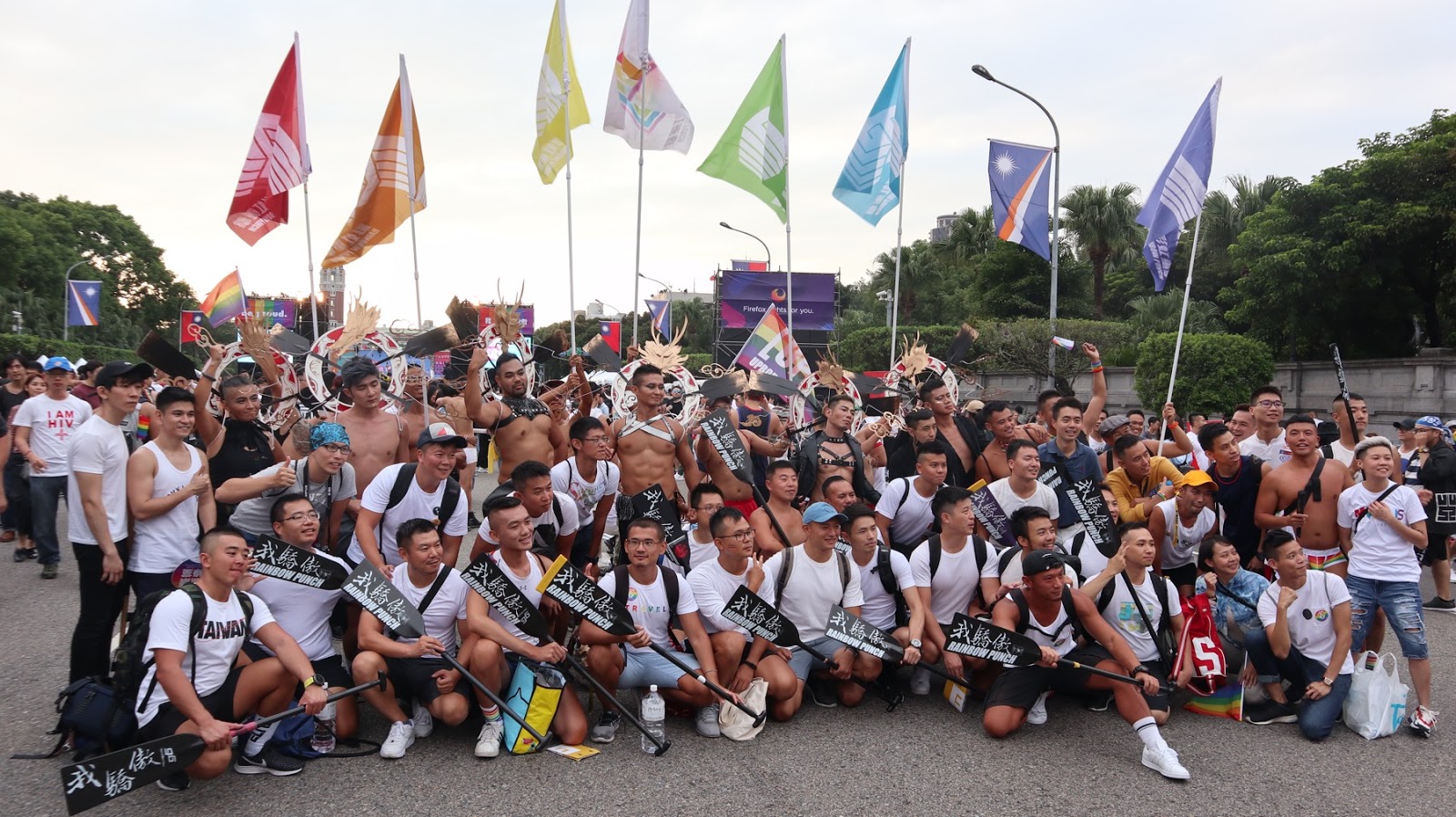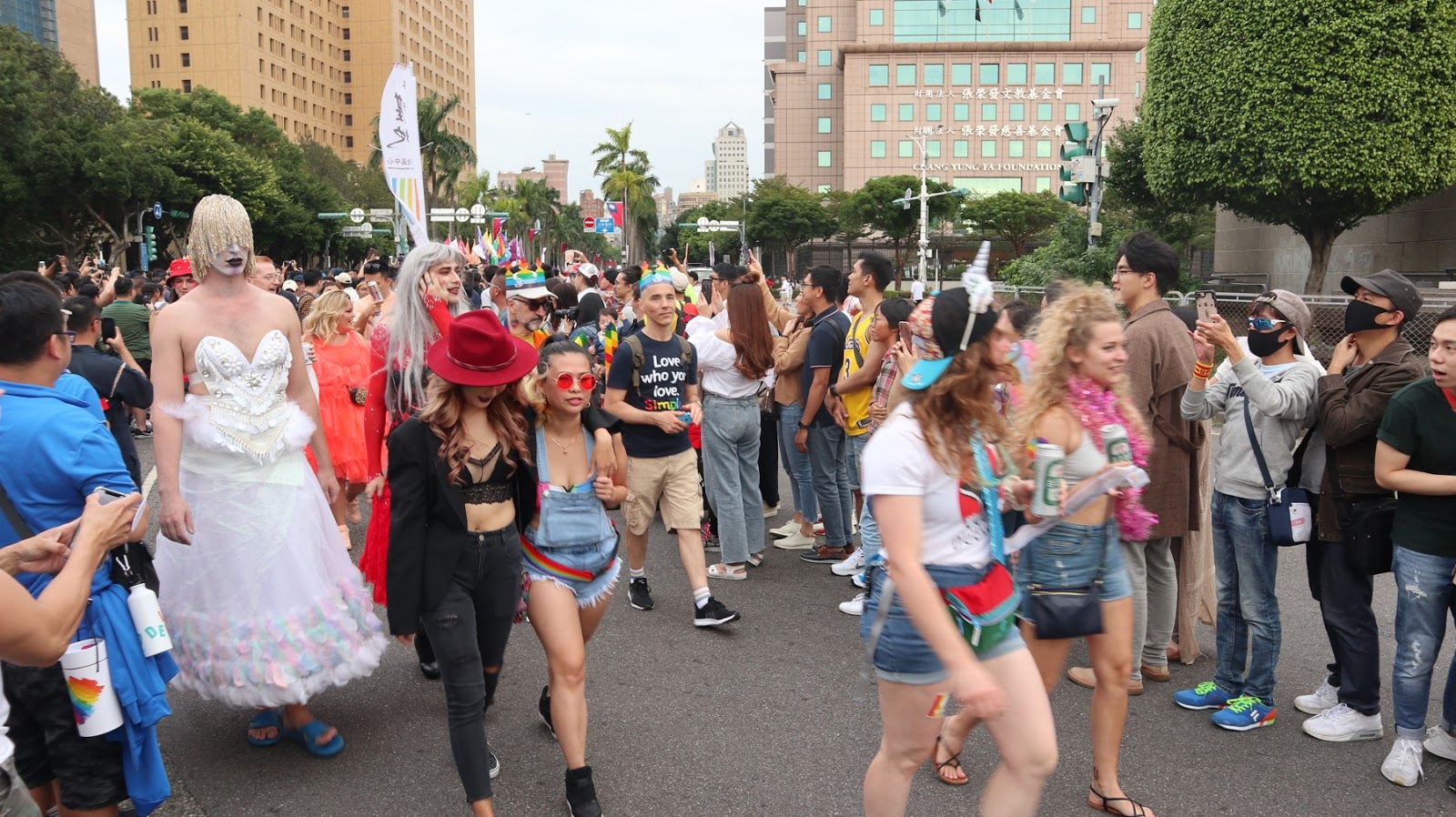Taiwan’s historic pride parade is celebration for Asia and reminder that the fight isn’t over
When Taiwan legalized gay marriage earlier this year, it positioned itself as a beacon of hope for the region. Its neighbors have not yet followed its example, and gay couples in Taiwan are still fighting for certain rights, but this year’s pride parade showed how far the place has come.
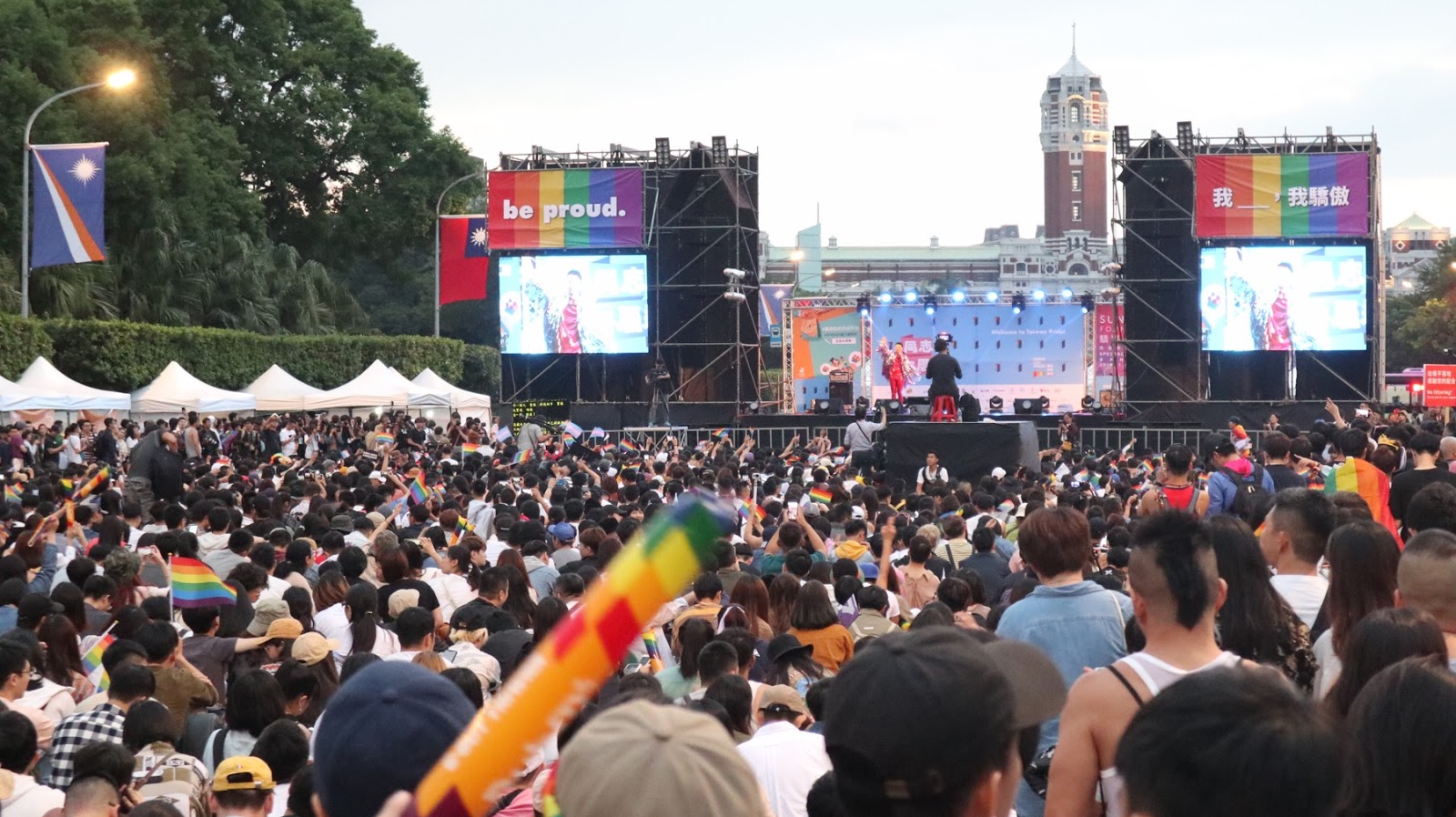
Taiwan held Asia’s largest-ever LGBT pride parade last weekend, just five months after it became the first on the continent to legalize marriage between same-sex couples.
More than 200,000 people marched from Taipei’s City Hall to its Presidential Office, just steps away from where Taiwan’s legislature voted on May 17 to pass a law allowing same-sex couples to register marriages. Since then, more than 2,000 same-sex couples have married.
That day — the culmination of a decades-long battle by Taiwan’s LGBT community to secure the right to marry — also inspired LGBT allies throughout Asia. Activists from China, Hong Kong, Macau, and Japan, among others, attended Saturday’s pride parade and met with Taiwan LGBT organizers who believe the nation can be a beacon of hope.
“We want to include everyone,” said Benson Lee of Marriage Equality Coalition Taiwan, which organized the parade, explaining the event’s theme of togetherness. “We don’t want to push anyone away.”
Revelers in elaborate costumes carried rainbow flags and signs through a single route in central Taipei as onlookers cheered, including the famed LGBT activist Chi Chia-wei (祁家威 Qí Jiāwēi), who also attended Taiwan’s first transgender pride parade the day before.
Taiwan’s legislation has been cast by many as a rebuke of a traditional argument that LGBT rights are incompatible with Asian culture. Taiwan, wrote activist Jennifer Lu in a May 20 Washington Post op-ed, showed the world that “the LGBTQ+ community is not intruding into Asian cultures, and LGBTQ+ rights can coexist peacefully with traditional Asian values.”
Beijing approved China’s first legal guardianship case for a same-sex couple in August, but weeks later, China ruled out same-sex marriages, saying limiting marriage to heterosexual couples “suits our country’s national condition and historical and cultural traditions.” In October, a Hong Kong court upheld rules barring same-sex civil partnerships. While Thailand may soon allow same-sex unions, the proposed law will not allow for same-sex marriages.
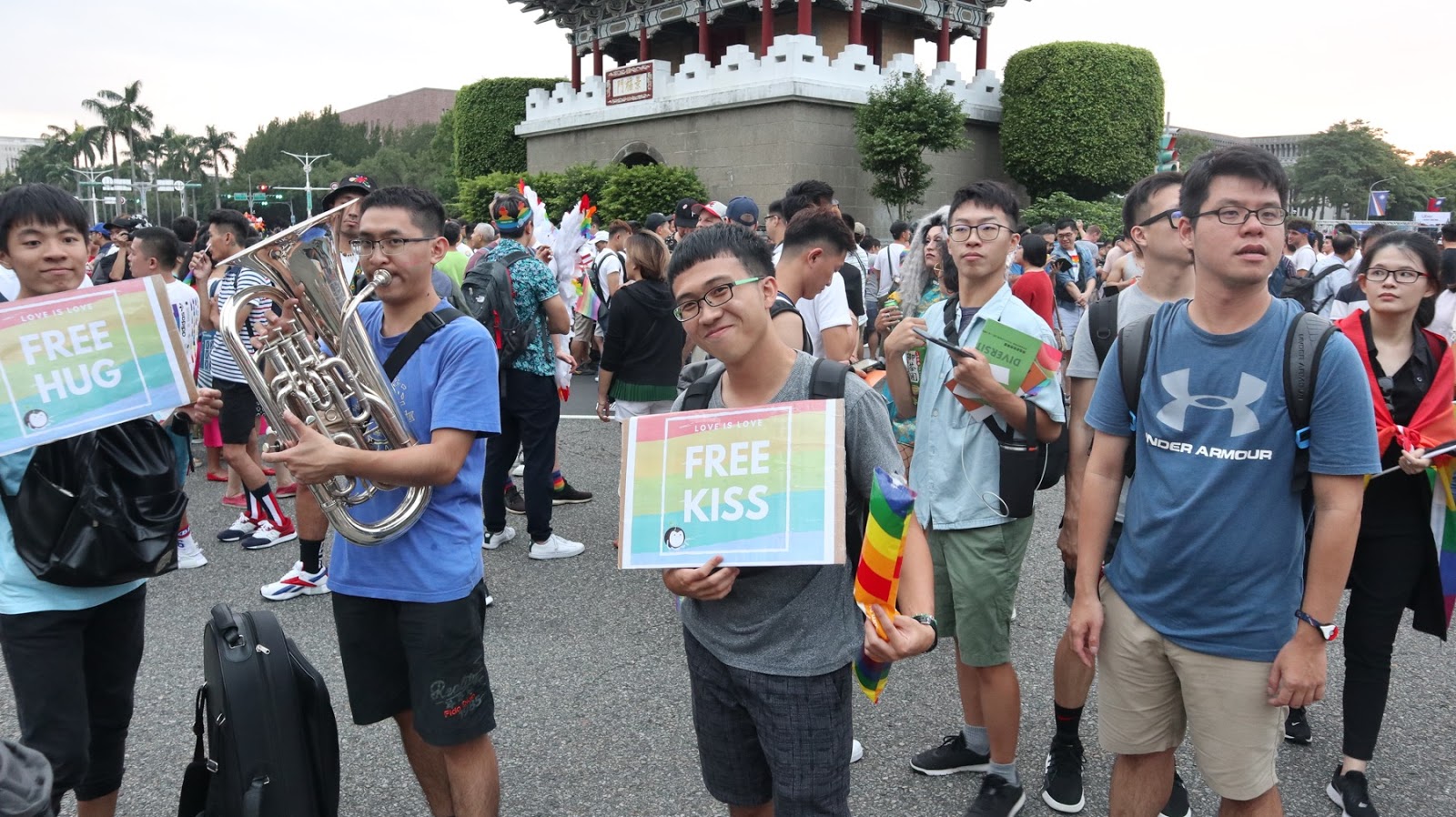
Taiwan passed its landmark act just before a deadline set by its high court, which ruled in May 2017 that barring same-sex couples from marrying was unconstitutional and gave lawmakers two years to amend the country’s marriage laws. Those two years, however, saw a strident pushback from groups opposed to same-sex marriage. In 2018, voters decided in public referendums to bar same-sex marriage from being added to Taiwan’s civil code, which governs heterosexual unions.
Taiwan’s legislature, ultimately bound by the high court and obliged to the referendum result, passed a law separate from the civil code, satisfying both mandates, on May 17. That day saw thousands gather on the Taipei streets as a morning downpour cleared and, in an ending too perfect for Hollywood, a rainbow appeared over the city. But while the law grants most benefits afforded to heterosexual couples, additional measures to permit full adoption rights, and to eliminate restrictions on some transnational marriages, failed to pass.
“We were there together and saw the rainbow with the Taiwanese people,” said Leong Chin-fai, a Macanese national who has been unable to marry his Taiwanese partner, Ting Tse-yan. For them, the day was bittersweet: The new law does not allow same-sex unions if it’s illegal in the home country of one of the partners (such as Leong). “We [had] let the lawmakers know, maybe you are ignoring us,” he said. “And finally, they ignored us.”
On May 24, the first day Taiwan allowed gay couples to marry, Leong, 31, and Ting, 28, attempted to register their marriage and were told their application was essentially on hold. At the time, there was optimism that lawmakers would create a path toward transnational couples being able to marry in a matter of months, if not weeks. But when Leong and Ting made a second attempt earlier this month to register their union, their application was rejected.
Leong and Ting are blocked by an act governing civil law among foreigners that says marriage “is governed by the national law of each party.” The same act also bars the application of foreign law if it “leads to a violation of public order” in Taiwan, which Leong hopes can be used to supersede the marriage restriction. “Gay marriage,” he said, “is a public benefit in Taiwan.”
Taiwan is months away from a crucial election that will pit incumbent President Tsai Ing-wen (蔡英文 Cài Yīngwén), who ultimately supported legal same-sex marriage in Taiwan, against challenger Han Kuo-yu (韩国瑜 Hán Guóyú), who represents a more socially conservative segment of the electorate. Tsai and her ruling Democratic Progressive Party, who were hurt politically by internal party factions opposing gay marriage, have hesitated to address the issue of LGBT rights since the nation passed its landmark law in May.
LGBT activists are “aware there’s probably not going to be a lot of motion on the issue” before the January 2020 election, said Michael Garber, a filmmaker making a documentary on Taiwan’s path to legalizing same-sex marriage. Garber noted that legislators from the opposition Kuomintang who voted in favor of the May marriage law had immediate fears they would lose party support in their bids for reelection. Tsai’s ruling party, which already took two long years to fend off opposition to legalizing gay marriage, has little interest in putting the rights of LGBT couples back into the spotlight.
Most members of Taiwan’s LGBT community accept this, said Jay Lin, CEO of Taipei-based Portico Media and a gay father of two children. “With the election coming up, people are shifting their attention to national issues,” he said. “We don’t want to be used as the scapegoat or as any excuse for any party.”
But Leong and Ting say the LGBT community has been told to wait before. “Organizations promoting LGBT rights know rights don’t fall from the sky,” said Leong, whose case has received a groundswell of support from prominent LGBT activists such as Victoria Hsu of the Taiwan Alliance to Promote Civil Partnership Rights, a lawyer who volunteered to take on their case.
To Leong, the right to marry is a human right to be afforded to all, regardless of nationality. Taiwanese law contains different stipulations for nationals of Hong Kong and Macau, Chinese nationals, and those from other countries, meaning Leong’s solution may differ from that of others. But he vows to fight for all couples. “I think this is a human right,” he said. “We will fight together until the last couple can get married.”
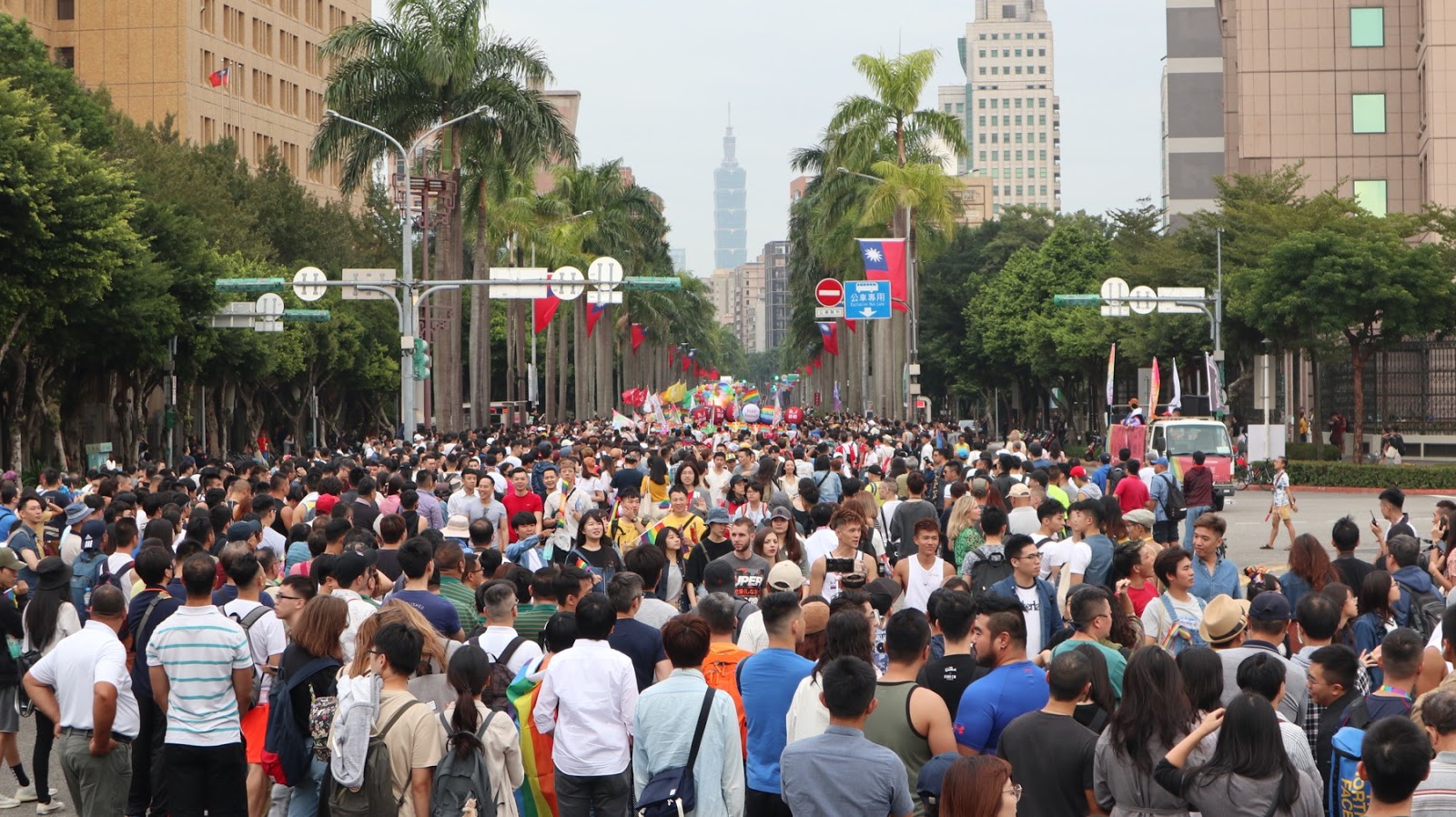
Taiwan’s LGBT community has said all along, even amid the euphoria of the May marriage law, that it has not yet achieved full equality. Saturday’s pride parade, however, showcased the progress made since last year’s event, which was held just before the public referendums that dealt a crucial blow to the fight for same-sex marriage.
As Taiwan welcomed visitors from around the world last weekend, it aimed to share its message of progress. Visitors arriving at the main international airport were greeted with rainbow flags and pride posters, and the foreign ministry co-hosted a conference for over 200 global LGBT leaders.
“The light at the end of the tunnel is not all bleak and dreary,” said Lin, who has documented gay communities throughout Asia and in 2017 launched GagaOOLala, a LGBT-focused streaming service hosting more than 1,000 titles. “Many people are realizing the values we’re espousing can be embraced and can be a part of Asian cultural values.”
Taiwan, still in many facets a socially conservative society at heart, overcame its own political, religious, and cultural realities to embrace same-sex marriage. In the five months since, it has seen a previously vocal opposition largely relegated to the sidelines, and few political figures have expressed discontent with the new law as they campaign for January’s elections.
This has given hope to people in countries like China, which celebrated Taiwan’s ruling on Weibo in May, and in Japan, where same-sex couples have sued for the right to marry. Activists from Japan, China, and Hong Kong marched in Saturday’s pride parade.
Within Taiwan, it also gives couples like Leong and Ting optimism as they push to register their marriage. Leong, who has dated Ting since 2015, plans to stay permanently in Taiwan, where the couple has opened a pastry shop. “Taiwan is my home,” he said. “He is my husband…and my husband is my home.”
